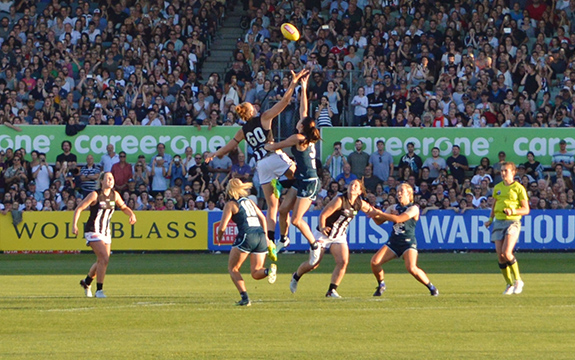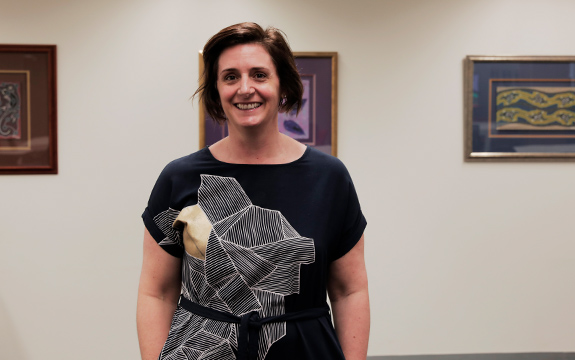Sporting sector may be key to reducing violence against women

In Summary
- Researchers from Swinburne and Latrobe University have started work on a project linking sports to reducing violence against women
- Major recommendations include promoting gender-neutral language in sport
- Design principles and guidelines for a pilot program have been put in place as a result of the roundtable
A roundtable led by academics and sporting professionals has explored the relationship between sporting codes and violence against women.
The roundtable conference was the first part of a project by researchers from Swinburne and La Trobe University to promote gender equality and reduce violence against women.
The project has been commissioned by the Office of Prevention and Women’s Equality, and explores how the Victorian sport sector can help support and achieve women’s equality and prevent violence.
The first stage of this project was to convene a panel of experts in sport and active recreation, women’s equality, and prevention of violence, for a two-day round table discussion, which took place in Melbourne last week.
Associate Professor and Deputy Chair of Management and Marketing at Swinburne Dr Emma Sherry is leading the project and believes that such roundtable discussions are important for progress.
“Rather than relying on desk-research alone, we wanted to engage key stakeholders in critically unpacking and engaging with the initial research findings,” she says.
“This will assist in developing strong design principles and guidelines for future gender equality and primary prevention initiatives in the Victorian sport sector.”

Swinburne's Dr Emma Sherry believes sport plays a significant role in reducing violence against women and promoting gender equality.
The roundtable included participants from across the Victorian sport sector, including professional sporting clubs, sport governing bodies and government partners.
Key stakeholders such as local government, VicHealth, Vicsport, Proud to Play, and Our Watch were also present to provide specific insight and advice.
“The panel were selected to ensure all community levels and key sectors of health, gender and sport were invited,” explains Dr Sherry.
“We also worked with our stakeholders to have representation from those delivering sport across the state, in both metropolitan and regional Victoria.”
Outcomes of the roundtable
Following the roundtable discussion, the panel was able to make recommendations, and develop design principles and program guidelines.
These recommendations and guidelines will position the sporting industry as a role model for cultural expectations.
A key recommendation was to employ gender-neutral language across the sporting sector.
This is believed to discredit rigid gender roles and stereotyped constructions of masculinity and femininity.
Other notable recommendations included:
- Policy and decision making that reflects gender equality in the sporting sector.
- Strong and effective governance to achieve gender equality at all levels, not just professional.
- Initiatives should be inclusive and participatory, and not set one group against the other, or victimize or condemn any particular group.
- Collaborating with organizations both within the sporting sector and outside of the sporting sector, to form strong partnerships that work towards gender equality.
These are among design principles that are to be explored in an in-depth summary of the roundtable.
The summary will be presented to the Office of Prevention and Women’s Equality in December this year with the aim of conducting pilot testing in the Victorian sport sector in 2018.

